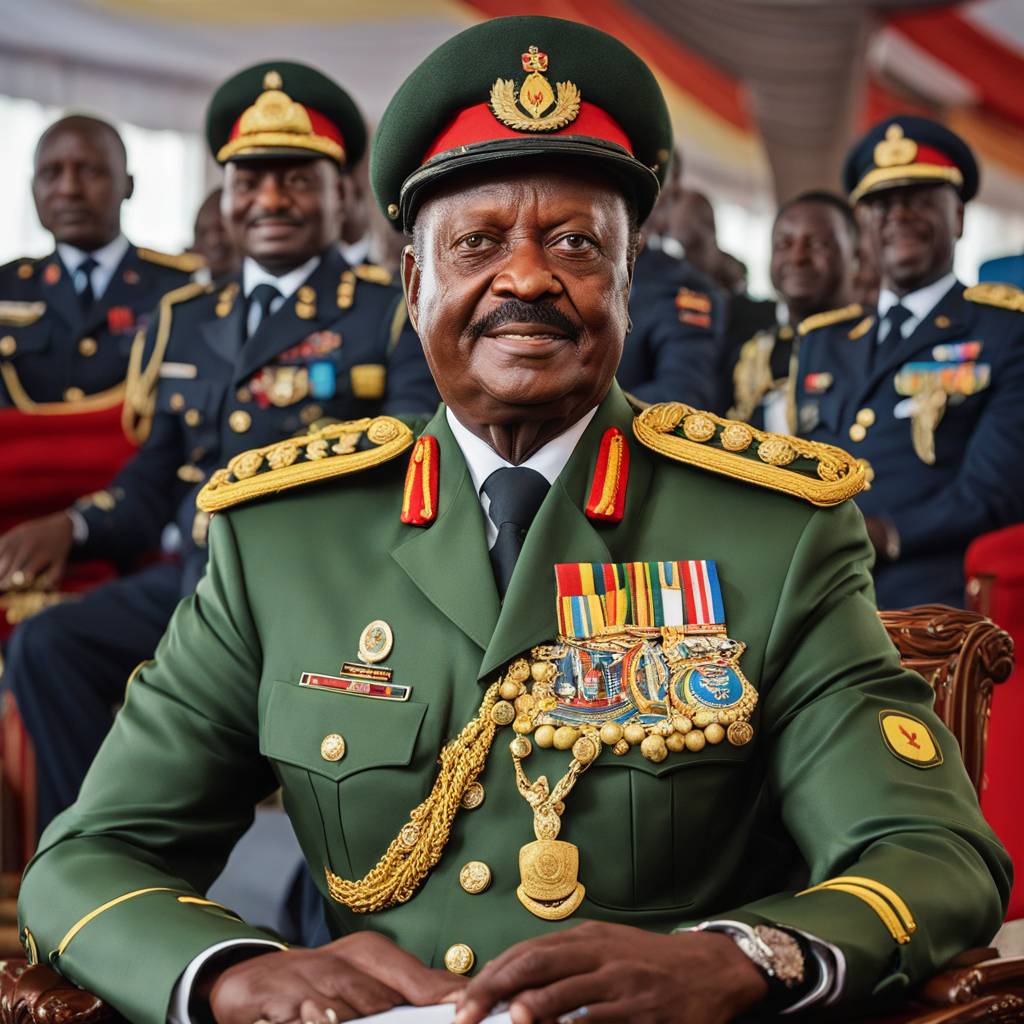After 38 years in power, Uganda’s President Yoweri Museveni has raised concerns by promoting his son, General Muhoozi Kainerugaba, as the head of the army. This move has led many to believe that Museveni is grooming his son to succeed him as president. Despite Kainerugaba’s denial of eyeing the top job, his recent activities, which include holding rallies and launching an activist group, suggest otherwise. This has sparked speculation about the potential for hereditary rule in Uganda.
Kainerugaba, aged 49, has quickly risen through the ranks of the Ugandan army since the late 1990s in what has been dubbed the “Muhoozi Project”. While Museveni and Kainerugaba deny any deliberate scheme to pave the way for the latter’s presidential candidacy, recent developments, such as the ministerial reshuffle and the appointment of Kainerugaba as army chief, indicate a transition may be underway. Supporters see him as a potential avenue for a peaceful transfer of power, while critics argue that his rise could lead the country towards hereditary rule.
Despite regulations prohibiting serving army officers from engaging in partisan politics, Kainerugaba has been actively involved in political activities, sparking controversy. His previous inflammatory comments, such as threatening to invade Kenya and declaring Uganda’s willingness to defend Moscow against Imperialists, have caused diplomatic tensions. Museveni, who apologised for his son’s remarks about Kenya, has defended Kainerugaba as a “very good general” and continued to promote him despite the backlash.
The speculation surrounding Kainerugaba’s ascent to power has long been evident to many Ugandans, although the government has previously cracked down on discussions regarding the matter. In 2013, independent media outlets were shut down for publishing a leaked memo suggesting Museveni’s plans to groom Kainerugaba as his successor. This indicates a history of suppressing dissent and controlling the narrative around the succession of power within the ruling National Resistance Movement party.
With Museveni’s tight grip on power and lack of viable rivals within the ruling party, the potential for a peaceful transition of power remains uncertain. The appointment of Kainerugaba as army chief further solidifies the belief that a succession plan may be in place, raising questions about the future of Uganda’s political landscape. The debate between those supporting Kainerugaba as a potential successor and those warning against hereditary rule continues to intensify, highlighting the complexities of Uganda’s political future under Museveni’s long-standing rule.













